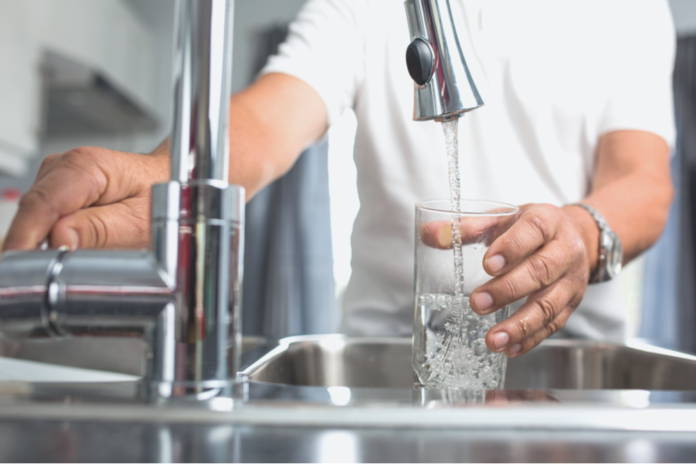Dehydration is a serious concern for seniors that could lead to hospitalization and in severe cases may be fatal. Seniors are at an increased risk for dehydration because of decreased sense of thirst, decreased muscle mass, and altered regulation of body temperature. Certain health conditions or medications may also add complexities for senior hydration.
As dehydration is a serious health consideration for seniors, it is important to know how seniors can avoid reaching this point. Read on to learn more about senior fluid needs and tips for seniors to stay hydrated.
Importance of Hydration for Seniors
Unfortunately, seniors are at a higher risk for dehydration compared to younger adults. It is important seniors avoid and prevent dehydration, as it could increase risk for negative health events and even increase mortality risk.
According to an article on hydration in the elderly, dehydration is often linked with infection. If overlooked, mortality rates could be as high as fifty percent when both are present.
Even slight dehydration, as little as 2 percent of body weight, can cause adverse health effects or increase the risk of heat exhaustion. First signs of dehydration, like fatigue, dry mouth, or headache, can be easy to miss or assume they are side effects from medications or other medical conditions.
Seniors are more apt for dehydration for the following reasons below.
- In senior years, the thirst mechanism is unreliable for gauging when and how much to drink. Dehydration can occur long before one feels thirsty.
- Kidney function for retaining water in the body can be diminished.
- Lean mass is primarily where humans store water in the body. As muscle mass diminishes with aging, there are less water reserves in the body.
- Temperature regulation such as cooling the body down through sweating can diminish in senior years.
- Decreased appetite or health factors that affect swallowing and eating
- Side effects from medications can increase dehydration risk
- Fear of incontinence
- Diminished mobility or cognitive function
Senior Fluid Needs
As with any person, exact fluid needs depend on many factors including age, sex, body size, environmental considerations, and activity level. Cleveland Clinic suggests starting with 8 glasses of fluids per day as a general goal to start with for hydration for seniors. It is an easy guideline that most are familiar with and can remember.
If this seems like too large of an amount for a senior, start with 5-6 cups per day. If there are other medical considerations, it is best to consult the healthcare team for individual recommendations.
It is important to emphasize drinking fluids, ideally mostly water, before feeling thirsty. Drinking water throughout the day should be incorporated into daily routine as best fit.
8 Hydration Tips for Seniors
If a senior is at risk for not drinking enough fluids, these tips can help with adequate hydration throughout the day.
1. Add Flavor
If drinking plain water is unappealing, make it more interesting by adding cut up lemons, oranges, strawberries, or other fruits to add some flavor. Mix up beverage choices with sparkling water or adding a splash of real fruit juice to a glass of water.
Hot tea or coffee may also be more appealing for some seniors to drink and can be used in moderation. Caffeine free options are best.
Most seniors will want to avoid drinking sugary beverages unless otherwise directed by the healthcare team.
2. Set Reminders
Set reminders on a phone or around living space for drinking water. Do this instead of relying on thirst to determine how much to drink through the day.
Regardless of feeling thirsty, put a reminder to drink a cup of water (more or less depending on fluid intake goals) at certain intervals throughout the day.
3. Take Water With You
When going outside, make it a habit to take a water bottle especially in warm weather. It is important to be prepared to have fluids when not at home.
4. Eat Foods with High Water Content
Besides drinking more fluids, eating foods with high water content is another way to help seniors stay hydrated. Encourage more yogurt, fruits, vegetables and broth based soups to help bump up water intake through food.
5. Drink at Meal Times
If there are no appetite or swallowing issues, drinking a glass of water at meal times can be a helpful habit for helping seniors stay hydrated. If there are concerns about appetite or swallowing, work with the healthcare team to determine the best course of action for timing with eating and fluids.
6. Drink a Little More Frequently
Instead of trying to drink a large amount of liquids at once, focus on drinking smaller portions throughout the day. Quick gastric distension, like after drinking a large volume of fluid, can further inhibit thirst mechanism. Therefore, this should be avoided for adequate hydration.
7. Emphasize Drinking Before Feeling Thirsty
Make sure seniors realize the importance of drinking before feeling thirsty. It may seem counterintuitive and not necessary, but it is important seniors realize they can become dehydrated quickly and their thirst indicator is not reliable.
8. Consider Individual Health Needs
Appropriate fluid needs should be tailored for each individual depending on medications, any medical conditions, cognitive state and ability to move around independently.
Conclusion
Dehydration is a serious concern for seniors, and adequate hydration should be taken seriously. Seniors are at an increased risk for dehydration due to altered thirst mechanism, body temperature regulation and lowered body stores of water.
Individual fluid needs will vary, but a general recommendation is 8 glasses of water per day. In order to stay hydrated, it is important for seniors to drink fluids throughout the day before feeling thirsty. Sipping small amounts of fluids throughout the day is recommended over drinking a large amount at one time.
Setting reminders throughout the day can help encourage drinking as part of daily routine. Other ways to help older adults stay hydrated include drinking at mealtimes and eating foods with high water content. Adding flavor to water and bringing water when leaving living spaces can likewise be helpful.
References:
Drink Up: Dehydration is an Often Overlooked Health Risk for Seniors. Health Essentials from Cleveland Clinic. Published October 12, 2020. https://health.clevelandclinic.org/drink-up-dehydration-is-an-often-overlooked-health-risk-for-seniors/.
Ferry M. Strategies for Ensuring Good Hydration in the Elderly. Nutrition Reviews. Published June 2005. https://onlinelibrary.wiley.com/doi/pdf/10.1111/j.1753-4887.2005.tb00151.x.






